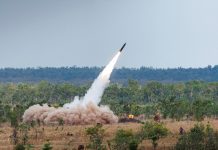
Australia is facing a pressing challenge in its journey towards building a skilled and sustainable manufacturing workforce. With a growing shortage of vocational trainers, particularly Technical and Further Education (TAFE) teachers, the nation’s ability to pass on essential vocational skills to the next generation is at risk.
In a bid to address this gap, Manufacturing Skills Australia (MSA) is reaching out to the Australian manufacturing community for support by launching a research project to gather insights and propose solutions that will shape education policy decisions and secure the future of the industry.
In an exclusive interview with Australian Manufacturing, Leon Drury, the executive officer at MSA, shared some insights into the pressing issue and tackled how their research aims to bring about positive changes in the sector.
The challenge at hand
Drury underscored that the lack of skilled trainers to pass on their expertise and mentor the next generation of manufacturing workers has significant repercussions for the industry.
“With industry struggling to attract and retain skilled staff, this has meant that teachers returning to industry to take advantage of better rates of pay has led to teacher shortages across several training organisations,” he noted.
The MSA official also said that without adequate guidance and mentorship, the training of apprentices becomes compromised.
“When we are unable to attract suitably qualified trainers we are unable to train apprentices as there is a lack of supervision and mentoring in training environments. This puts capacity constraints on industry and impacts revenues for states and territories,” Drury explained.
The path to a solution
Manufacturing Skills Australia recognises the need for immediate action, and by conducting research, the organisation said it aims to uncover the root causes behind the reluctance of manufacturing workers to transition into vocational training roles.
In particular, Drury said the primary goal of this research is to inform strategies and actions required to address the shortage of skilled labour in the manufacturing sector.
“MSA will be better placed to provide advice to government and VET stakeholders on how to address shortages of skilled labour throughout the labour pipeline,” he remarked.
Influencing education policy
While the MSA board is yet to determine the next steps, the research findings are expected to be instrumental in influencing education policy decisions. Drury emphasised the initiative may serve as a starting point for addressing labour shortages and developing a sustainable model to attract and support individuals seeking careers in VET and the sector.
“Information and evidence can be presented to decision-makers to promote policy change and support for people wanting to gain the skills required to become a VET Teacher or trainer,” he stated.
Engaging manufacturing workers
To successfully execute this research, MSA requires the assistance of manufacturing workers – the individuals who understand the industry’s challenges best. They are invited to participate in a brief, one-minute online survey.
MSA also said it is actively collaborating with industry partners, peak industry associations, and unions to engage with stakeholders.
“The biggest challenge here is to articulate the impact of the problem to stakeholders and then educate them on options for career development,” Drury concluded.
For questions or concerns about this study, you may reach out to the organisers at research@mskills.org.au or visit the MSA website.
To participate in the survey, you may click on this link. The online survey will remain open until 31 October 2023.



















